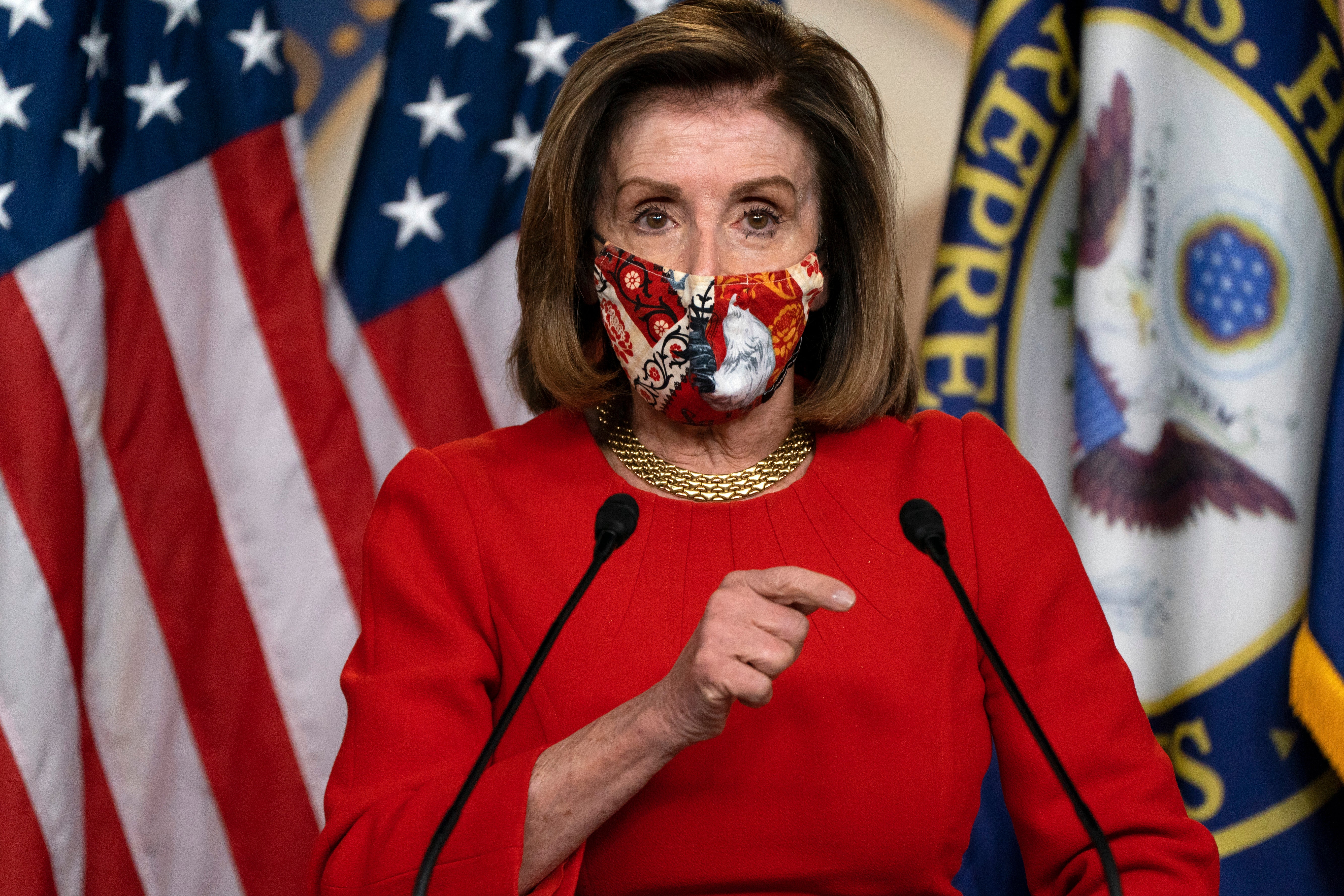COVID-19 relief: What's on the table as Congress seeks deal
Under pressure from moderates in both parties, House Speaker Nancy Pelosi and Senate Majority Leader Mitch McConnell have initiated late-game negotiations in hopes of combining a relief package of, in all likelihood, less than $1 trillion with a separate $1.4 trillion governmentwide omnibus spending bill

Your support helps us to tell the story
From reproductive rights to climate change to Big Tech, The Independent is on the ground when the story is developing. Whether it's investigating the financials of Elon Musk's pro-Trump PAC or producing our latest documentary, 'The A Word', which shines a light on the American women fighting for reproductive rights, we know how important it is to parse out the facts from the messaging.
At such a critical moment in US history, we need reporters on the ground. Your donation allows us to keep sending journalists to speak to both sides of the story.
The Independent is trusted by Americans across the entire political spectrum. And unlike many other quality news outlets, we choose not to lock Americans out of our reporting and analysis with paywalls. We believe quality journalism should be available to everyone, paid for by those who can afford it.
Your support makes all the difference.After numerous fits and starts and months of inaction, optimism is finally building in Washington for a COVID-19 aid bill that would offer relief for businesses, the unemployed, schools, and health care providers, among others struggling as caseloads are spiking.
Under pressure from moderates in both parties, House Speaker Nancy Pelosi and Senate Majority Leader Mitch McConnell have initiated late-game negotiations in hopes of combining a relief package of, in all likelihood, less than $1 trillion with a separate $1.4 trillion governmentwide omnibus spending bill. The duo were the architects of the $1.8 trillion CARES Act, the landmark relief bill passed in March.
Success is not certain and considerable differences remain over items such as aid to states and local governments liability protections for businesses and universities reopening during the pandemic, and whether to issue a second round of $1,200 direct payments to most Americans.
But renewing soon-to-expire jobless benefits, providing a second round of “paycheck protection” subsidies, and funding to distribute vaccines are sure bets to be included in any deal
Here are the top issues for the end-stage COVID-19 relief talks.
___
JOBLESS BENEFITS
The CARES Act created a $600 per-week bonus COVID-19 unemployment benefit that sustained household incomes and consumer demand during the springtime shutdowns. It expired at the end of July and Republicans are against its renewal. The CARES Act also allowed for additional weeks of emergency pandemic unemployment payments at regular benefit levels — which are themselves about to expire, on Dec. 31. Any deal is sure to extend the emergency benefits, and a bipartisan compromise framework that’s helping guide the talks calls for restoring half of the bonus benefit, or $300 per week more.
___
BUSINESS SUBSIDIES
Another sure thing is a reauthorization of the Paycheck Protection Program, also established by the CARES Act, to give a second round of subsidies to businesses struggling through the pandemic and make other changes to the program, which enjoys bipartisan support but is particularly revered by Republicans. Leftover PPP funds from two springtime infusions into the program would cover almost half of the $300 billion or so cost.
___
DIRECT PAYMENTS
President Trump has long supported another $1,200 round of direct payments to most Americans, subject to income limits that make upper-bracket taxpayers ineligible. House Democrats support the idea, but it is unpopular with many Senate Republicans and was left out of a scaled-back Senate GOP plan. A bipartisan bill by Sens. Susan Collins, R-Maine, and others, leaves out the direct payments as well, and their up to $300 billion cost could render them too expensive for inclusion in the year-end package, though lawmakers ranging from Alexandria Ocasio-Cortez, D-N.Y., to Sen. Josh Hawley, R-Mo., are pushing to retain them.
___
STATE AND LOCAL GOVERNMENTS
This is one of the trickiest issues in the talks — another round of aid to states and local governments to follow a $150 billion installment this spring. It’s a top priority of Pelosi and other Democrats but is opposed by many Republicans, who warn it would bail out states run by Democrats like California and New York. Trump doesn’t like the idea as well, but Pelosi’s demands for the money have been slashed from earlier amounts approaching $1 trillion. Revenue losses due to COVID-19 haven’t been as large as feared. But smaller localities left out of the first tranche of payments are eager for funding. A plan endorsed by moderates would provide $160 billion.
___
LIABILITY SHIELD
Businesses reopening during the pandemic have for months been seeking a shield against lawsuits claiming negligence for COVID-19 outbreaks. McConnell is the most potent backer of the idea and he’s drafted sweeping protections against lawsuits for businesses, universities, and other organizations. The powerful trial lawyers lobby — which still holds great influence with Democrats — is opposed, and McConnell’s fears of a wave of COVID-related lawsuits haven’t materialized. Veteran Senate Judiciary Committee members Dick Durbin, D-Ill., and John Cornyn, R-Texas, have been deputized to negotiate the issue, a sign the talks are at a serious stage.
___
ODDS AND ENDS
Numerous smaller items are ripe for inclusion, including $10 billion for the Postal Service, a $20 billion-plus deal adding food aid sought by Democrats and farm subsidies favored by Republicans, more than $100 billion in funding for schools seeking to reopen, along with funding for child care, Amtrak, transit systems, and health care providers.